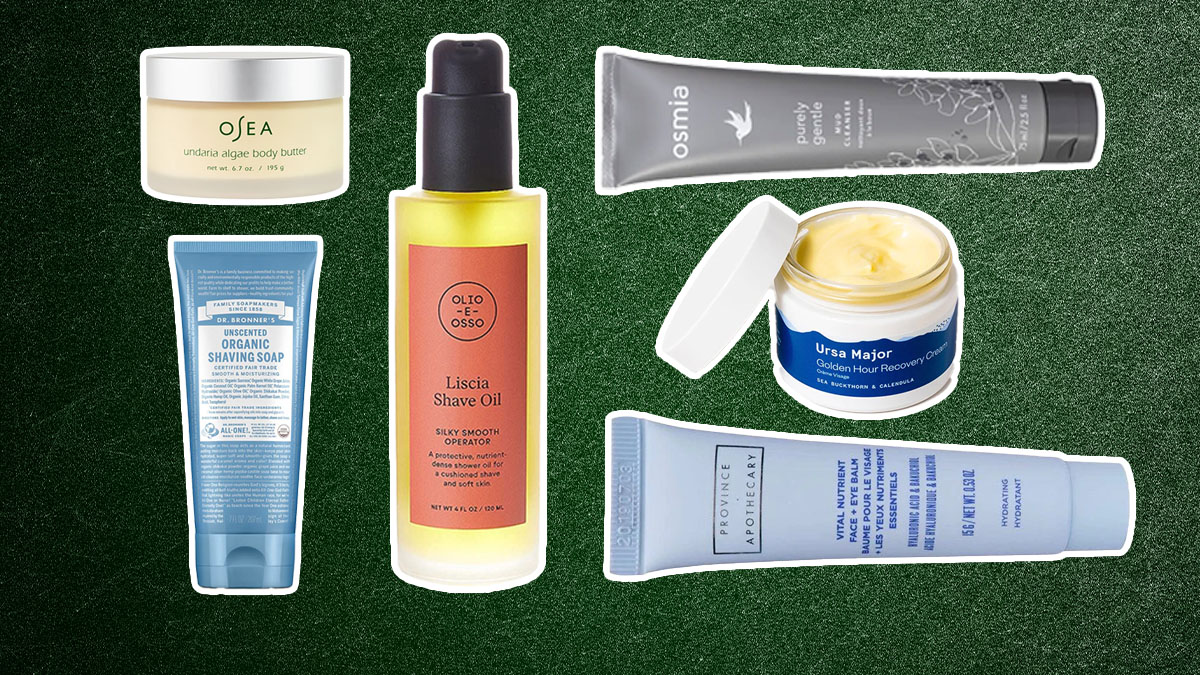Nota bene: All products in this article are independently selected and vetted by InsideHook editors. If you buy something, we may earn an affiliate commission.
In recent years, the skincare and beauty industry has gone into overdrive in promoting “clean skincare” products and ingredients that are better for the environment, better for social causes and, ultimately, our bodies.
As you might imagine, the answer to choosing a “better” skincare product is much more complicated than reaching for the first item that throws a claim on its packaging. Most of the claims put out there are unregulated and are largely up to the companies to decide for themselves.
Transitioning to cleaner skincare products doesn’t happen overnight, but with a few tips and guidelines, it’s actually a surmountable task. The following is our no-nonsense guide to “clean” skincare, along with a range of brands worth checking out as you begin your own journey towards better products.
Things to consider
Labels: You should start off by taking a look at the ingredients listed on the package. If for some reason they’re not there, check the brand’s site. The brands you want to use are those that are transparent about what they’re using in their products. Can’t find ingredients easily? Then it’s likely not a clean product.
Ingredients: Although the largest beauty and skincare companies have gone to great lengths to disguise some of the worst ingredients in their products, more research is coming to light about what synthetic ingredients in skincare products are doing to our bodies. The Environmental Working Group (EWG) has a good primer on 12 ingredients to avoid. Mainly, many of these synthetics have been linked to reproductive issues, allergy irritation and chronic illnesses.
Certifications: You would need to take several college courses to fully understand all of the certifications out there, but as a starting point, there are a few you can be on the lookout for in stores and while shopping online.
- Leaping Bunny: A certification from the Coalition for Consumer Information on Cosmetics (CCIC) in which brands commit to no animal testing of any kind.
- Climate Neutral: Mainly a certification around cutting emissions, brands that are CN-certified also adhere to strict social and environmental standards that lead to cleaner, safer products.
- B Corp: One of the most recognized certifications associated with companies conducting business with the greater good in mind along with transparent practices.
- Fair Trade USA: Highlighting commitments to fair working conditions, pricing and product traceability among other standards.
- USDA Organic: Perhaps the most popular and known certification denoting various levels at which a brand can claim “organic” on its packaging.
Cost: Buying cleaner often means spending more — sometimes a lot more. For now, that’s the nature of buying natural. Modern production emphasizes cheap and fast at the sacrifice of less processed methods. One way to circumvent this is to contact your favorite brands to ask for a sample size item or go through a marketplace like The Detox Market. You may be able to try a smaller and more affordable version of something before committing to the full size.
Trial and error: If you’re making the switch to cleaner products for the first time, you may notice your body take offense as it literally “detoxes” from the prior use of common chemicals and irritants in the most popular products. That is completely normal. Over time, you’ll find the right mix of products that works for you and supports your body and needs.
Clean skincare products
We've put in the work researching, reviewing and rounding up all the shirts, jackets, shoes and accessories you'll need this season, whether it's for yourself or for gifting purposes. Sign up here for weekly style inspo direct to your inbox.
